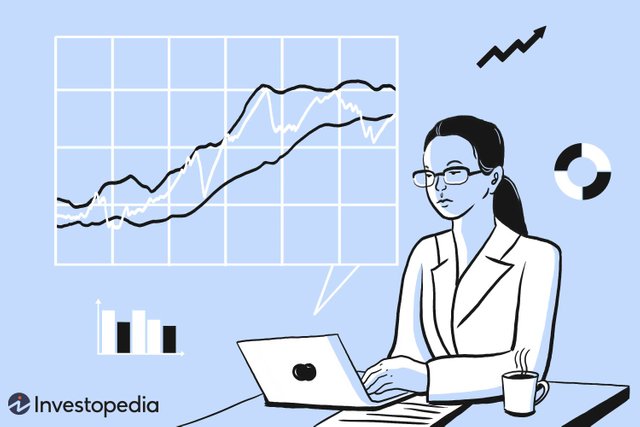Forex markets exist as spot (cash) markets as well as derivatives markets, offering forwards, futures, options, and currency swaps. Forex (FX) is a portmanteau of foreign currency and exchange. Foreign exchange is changing one currency into another for various reasons, usually for commerce, trading, or tourism. According to a 2019 triennial report from the Bank for International Settlements (a global bank for national central banks), the daily trading volume for forex reached $6.6 trillion in 2019.
Open Free Trading Account https://bit.ly/3FuuHIo
Retail investors should spend time learning about the forex market and then researching which forex broker to sign up with, and find out whether it is regulated in the United States or the United Kingdom (U.S. and U.K. dealers have more oversight) or in a country with more lax rules and oversight. It is also a good idea to find out what kind of account protections are available in case of a market crisis, or if a dealer becomes insolvent.
Open Free Trading Account https://bit.ly/3FuuHIo
Retail investors should spend time learning about the forex market and then researching which forex broker to sign up with, and find out whether it is regulated in the United States or the United Kingdom (U.S. and U.K. dealers have more oversight) or in a country with more lax rules and oversight. It is also a good idea to find out what kind of account protections are available in case of a market crisis, or if a dealer becomes insolvent.
What Is the Forex Market?

The foreign exchange market is where currencies are traded. Currencies are important because they allow us to purchase goods and services locally and across borders. International currencies need to be exchanged to conduct foreign trade and business.
Open Free Trading Account https://bit.ly/3FuuHIo
If you are living in the United States and want to buy cheese from France, then you or the company from which you buy the cheese must pay the French for the cheese in euros (EUR). This means that the U.S. importer would have to exchange the equivalent value of U.S. dollars (USD) for euros.
The same goes for traveling. A French tourist in Egypt can’t pay in euros to see the pyramids because it’s not the locally accepted currency. The tourist has to exchange the euros for the local currency, in this case, the Egyptian pound, at the current exchange rate.
Open Free Trading Account https://bit.ly/3FuuHIo
One unique aspect of this international market is that there is no central marketplace for foreign exchange. Rather, currency trading is conducted electronically over the counter (OTC), which means that all transactions occur via computer networks among traders around the world, rather than on one centralized exchange. The market is open 24 hours a day, five and a half days a week, and currencies are traded worldwide in the major financial centers of Frankfurt, Hong Kong, London, New York, Paris, Singapore, Sydney, Tokyo, and Zurich—across almost every time zone. This means that the forex market begins anew when the U.S. trading day ends in Tokyo and Hong Kong. As such, the forex market can be extremely active at any time, with price quotes changing constantly.
The foreign exchange market, also known as the forex market, is the world’s most traded financial market. We’re committed to ensuring our clients have the best education, tools, platforms, and accounts to navigate this market and trade forex.

Forex is short for foreign exchange – the transaction of changing one currency into another currency. This process can be performed for a variety of reasons including commercial, tourism and to enable international trade.
Open Free Trading Account https://bit.ly/3FuuHIo
Forex is traded on the forex market, which is open to buy and sell currencies 24 hours a day, five days a week, and is used by banks, businesses, investment firms, hedge funds, and retail traders.
Forex offers many benefits to retail traders. You can trade around the clock in different sessions across the globe, as the forex market is not traded through a central exchange like a stock market. This means you can jump on volatility, wherever it happens. High liquidity also enables you to execute your orders quickly and effortlessly.
Trading forex using leverage allows you to open a position by putting up only a portion of the full trade value. You can also go long (buy) or short (sell) depending on whether you think a forex pair’s value will rise or fall.
Forex trading offers constant opportunities across a wide range of FX pairs. FXTM’s comprehensive range of educational resources is perfect for getting started and improving your trading knowledge.